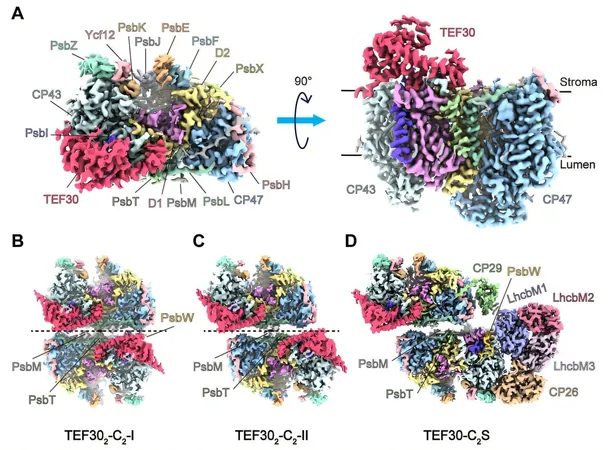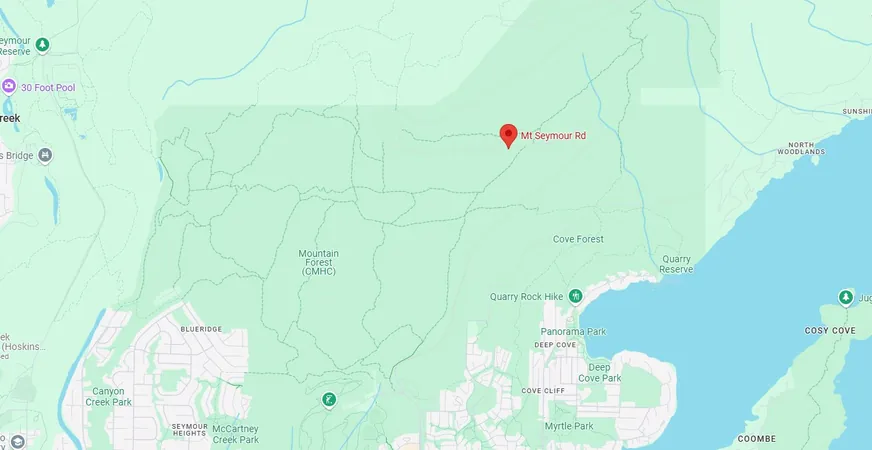
Alarming Study Reveals Link Between Psychedelic Use and Schizophrenia Risk!
2024-11-13
Author: Emily
Introduction
In a groundbreaking study, researchers have uncovered a disturbing correlation between emergency room visits due to hallucinogenic drug use and an increased likelihood of developing schizophrenia. Led by Dr. Daniel Myran, a notable Canada Research Chair in Social Accountability at the University of Ottawa, this research examined over 9.2 million individuals in Ontario.
Findings
The findings are staggering: individuals who sought emergency care for hallucinogen-related issues are 21 times more likely to be diagnosed with schizophrenia compared to the general population. Dr. Myran emphasized that while the study does not establish a direct cause-and-effect relationship between hallucinogen usage—such as psilocybin (magic mushrooms), LSD, DMT (Ayahuasca), and MDMA (Ecstasy)—and schizophrenia, it serves as a crucial reminder of our limited understanding of the potential adverse effects associated with psychedelic substances.
Emergency Visits Surge
The increase in hallucinogen-related emergencies is particularly concerning as the popularity of psychedelics rises across North America for both therapeutic and recreational purposes. Between 2013 and 2021, emergency department visits related to hallucinogenic drugs surged by an astonishing 86%. The research specifically focused on individuals aged 14 to 65 and revealed that 4% of those treated in emergency departments for hallucinogen use were diagnosed with schizophrenia within three years—compared to only 0.15% in the general population.
Comparative Risks
Notably, people who sought emergency treatment for hallucinogen use also exhibited significantly higher risks of developing schizophrenia than those treated for alcohol or cannabis-related issues—4.7 times and 1.5 times greater, respectively.
Caution is Needed
As the field of psychedelic-assisted therapy garners increasing interest—especially for conditions like PTSD, anxiety, and depression—Dr. Myran stressed the need for caution. While there is promising research suggesting potential mental health benefits, the current data remains limited, and clinical trials are ongoing in Canada. Furthermore, Health Canada has highlighted both the therapeutic potential and the psychological risks associated with this emerging treatment.
Growing Access and Concerns
The concerns are amplified by the emergence of magic mushroom dispensaries in various Canadian cities, including Ottawa. Dr. Myran raised alarms that easier access to these hallucinogenic substances might lead to more individuals experimenting outside controlled research settings, particularly among those at higher risk for schizophrenia or individuals with a personal or family history of psychotic disorders.
Conclusion
In conclusion, the study not only serves as a warning about the dangers of unsupervised psychedelic use but also calls for more meticulous research into the risks and benefits of these substances. As the landscape of mental health treatment continues to evolve, the implications of this study could shape conversations on the safe and responsible use of psychedelics in therapeutic contexts.









 Brasil (PT)
Brasil (PT)
 Canada (EN)
Canada (EN)
 Chile (ES)
Chile (ES)
 Česko (CS)
Česko (CS)
 대한민국 (KO)
대한민국 (KO)
 España (ES)
España (ES)
 France (FR)
France (FR)
 Hong Kong (EN)
Hong Kong (EN)
 Italia (IT)
Italia (IT)
 日本 (JA)
日本 (JA)
 Magyarország (HU)
Magyarország (HU)
 Norge (NO)
Norge (NO)
 Polska (PL)
Polska (PL)
 Schweiz (DE)
Schweiz (DE)
 Singapore (EN)
Singapore (EN)
 Sverige (SV)
Sverige (SV)
 Suomi (FI)
Suomi (FI)
 Türkiye (TR)
Türkiye (TR)
 الإمارات العربية المتحدة (AR)
الإمارات العربية المتحدة (AR)